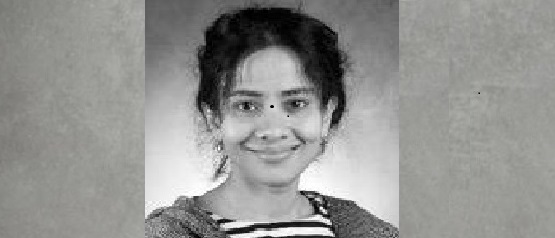Anindita Basu is Assistant Professor, Department of Medicine, Section of Genetic Medicine.
Basu leads a multi disciplinary research group that uses genomics, microfluidics, imaging and nano/bio materials to develop new tools to aid in diagnosis, understanding and treatment of disease.
Basu obtained B.S. in Physics and Computer Engineering at the University of Arkansas, and Ph.D. in Physics at University of Pennsylvania, followed by post doctoral studies in Applied Physics at Harvard University, and Systems Biology at the Broad Institute. She co invented two high throughput single cell/nucleus RNA seq technologies during her post doc that have been widely adapted across the world to dissect the role of different cell types in different tissues and organisms.
Leveraging multiple collaborations with physicians, geneticists, statisticians, engineers and her lab’s expertise in custom droplet microfluidic and molecular biology techniques, she is applying single cell genomics to map cell types and their functions in different organs, including the human heart, gut, and female reproductive system for the global Human Cell Atlas initiative; she then uses the findings from healthy organs as a basis to compare their functions in inflammatory bowel disease and ovarian cancer.Microbial communities are key influencers of homeostasis and disease in different tissue microenvironments. Supported by the NIH Director’s New Investigator award, she is developing new device fabrication, microfluidics and imaging tools to characterize microbial species and functions, understand variability in microbial transcription, how microbes interact with the host biology to support health or disease, and the mechanisms of drug resistance in pathogens.
In a qualitatively different project, she is working with Dr. Mary Hammes in the section of Nephrology to combine medical imaging, 3D modeling, 3D printing and soft lithography to build personalized fluidic models that capture a patient’s unique vein geometry, hemodynamics and bio chemical factors. These patient specific models are used to predict repeated thrombosis and stenosis events in patients undergoing regular hemodialysis.
Basu grew up in Kolkata, India, and has found home in many cities in the US. In her free time, Basu enjoys reading about myths and folk tales from around the world, cooking and exploring virtual reality.

